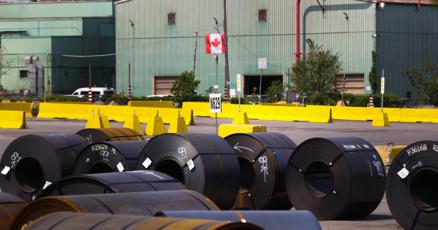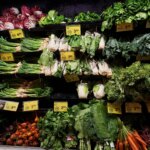I crossed the Detroit-Windsor border last week to investigate the troubling intersection of geopolitics and crime. What struck me wasn’t the usual bustle of commercial vehicles or the iconic skylines of these industrial hubs. It was the conspicuous absence – empty parking spots where vehicles should have been, and the palpable anxiety from auto industry workers I interviewed on both sides of this crucial international crossing.
“They’re not just stealing cars anymore,” explained Richard Mueller, a senior insurance investigator with decades of experience tracking auto theft trends. “They’re responding to market forces – specifically, to what Trump’s tariff threats are doing to the parts market.”
Canada is experiencing an unprecedented surge in auto theft, with a 50% increase in Ontario alone since 2021. Insurance Bureau of Canada data shows over 34,000 vehicles were stolen across the country last year, with losses exceeding $1.2 billion. But what’s driving this dramatic spike goes beyond opportunistic crime – it’s increasingly tied to economic policy decisions happening in Washington.
The proposed 25% tariff on Canadian autos that former President Trump has repeatedly threatened would dramatically increase the cost of new vehicles and legitimate parts flowing across the border. For criminal networks already involved in the lucrative trade of stolen vehicles and parts, this represents a perverse opportunity.
“The cost ripples through the supply chain,” said Marie Chen, automotive economist at the University of Toronto. “When legitimate parts become artificially expensive due to tariffs, the black market becomes more profitable. It’s simple economics, but with devastating consequences for communities.”
Walking through a Toronto neighborhood hit hard by auto theft, I met Jamal Thompson, who discovered his Toyota Highlander missing from his driveway three weeks ago. “The police told me it was probably already in a shipping container heading overseas,” he said, gesturing to the empty space where his family vehicle once stood. “But my neighbor’s car was stripped for parts right here in the city.”
This dual-track theft pattern – vehicles stolen for export and those targeted for domestic parts – reflects the sophisticated criminal networks responding to market signals. The uncertainty around future tariffs has already influenced this criminal economy, even before any formal policy change.
Canadian law enforcement agencies are increasingly concerned. The RCMP’s Integrated National Security Enforcement Team has documented connections between auto theft rings and broader transnational criminal organizations that quickly adapt to economic policy shifts between Canada and the U.S.
“When you increase the cost of legitimate business, you inadvertently boost profit margins for illegal operations,” explained Sergeant Danielle Martin of the Toronto Police Auto Theft Task Force. “These organizations are watching trade policy as closely as any corporate executive.”
The economic relationship between Canada and the U.S. automotive sectors is deeply intertwined. Components often cross the border multiple times before a vehicle is completed. According to Statistics Canada, the automotive trade between the two countries exceeded $107 billion last year.
Bryan Gomes, who manages a parts distribution center near Windsor, showed me his inventory tracking system during my visit. “We’re already seeing price speculation affecting the market,” he explained. “Some suppliers are hedging against potential tariffs by adjusting pricing now, which makes legitimate parts more expensive and creates opportunity for black market alternatives.”
The impacts extend beyond consumer costs. Communities built around automotive manufacturing feel particularly vulnerable. In Oshawa, where General Motors maintains significant operations, city councilor Emma Richardson described the ripple effects: “When automotive sector jobs are threatened by tariffs, and simultaneously our residents can’t afford insurance because of theft rates, it creates a perfect storm of economic insecurity.”
Insurance companies have responded by raising premiums. Canadian policyholders now pay an average of $340 more annually due to auto theft alone, according to industry figures. Some neighborhoods in Toronto and Montreal face insurance surcharges approaching 30% over standard rates.
“People don’t always connect international trade policy to crime in their neighborhood,” observed Professor James Wilson, who studies economic security at Carleton University. “But the relationship is increasingly direct. When you create artificial barriers to trade in highly integrated economies, criminal enterprises exploit those inefficiencies.”
For law enforcement, the challenge is substantial. Detective Inspector Carolyn Russell of the RCMP noted that these theft rings have evolved beyond opportunistic criminals. “We’re dealing with sophisticated networks that analyze supply chains, monitor port security, and respond to market signals with remarkable efficiency.”
As I prepared to cross back to the American side of the border, a customs official who requested anonymity shared an observation that perfectly captured the situation: “We spend millions scanning for contraband coming into the country, but it’s the perfectly legitimate policies coming out of Washington that might be driving some of the most profitable criminal enterprises.”
The bitter irony isn’t lost on Canadian officials or citizens – policies ostensibly designed to protect American industry may ultimately strengthen cross-border criminal networks while weakening legitimate business relationships built over decades.
Until policymakers recognize how trade decisions reverberate through both legal and illegal economies, communities on both sides of this crucial border will continue paying the price – in stolen vehicles, damaged livelihoods, and eroded economic security.






